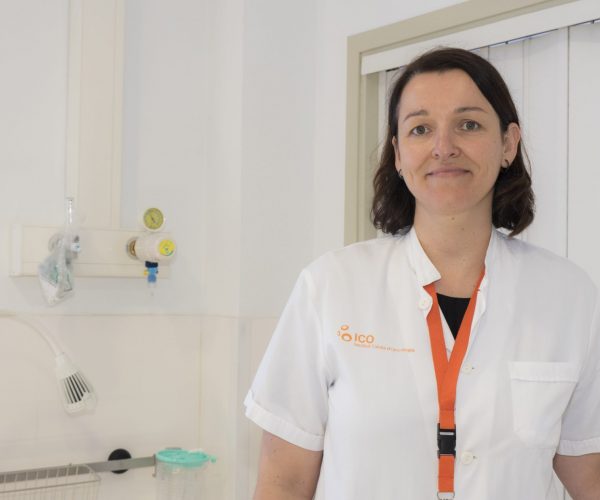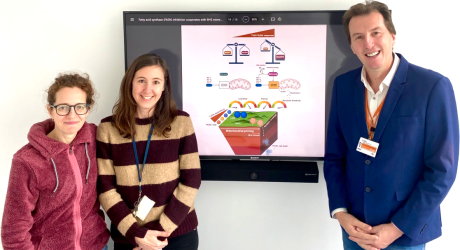Researchers from ICO Girona-IDIBGI participate in the study of a new treatment that improves the survival of advanced ovarian cancer patients
An international study that has just been published in the scientific journal The New England Journal of Medicine has shown that the administration of niraparib after conventional chemotherapy in patients with newly diagnosed advanced ovarian cancer improves their progression-free survival and reduces the risk of relapse or death from this illness.
The study, which has also been presented at the Annual Conference of the European Society for Medical Oncology (ESMO), which is being held in Barcelona, is led by the director of the Department of Oncology of the University Clinic of Navarra and president of the Spanish Group for Research in Ovarian Cancer (GEICO), Dr. Antonio González Martín; with the participation of Dr. Pilar Barretina, medical oncologist and leader in the field of ovarian cancer in the Catalan Institute of Oncology (ICO) and researcher at IDIBGI. In addition, the clinical trial, in phase III, has been carried out in 181 international centers, including professionals from other ICO centers, Hospitalet and Badalona.
During the study 733 patients newly diagnosed with advanced ovarian cancer of serous or high grade endometrioid histological types were analyzed. The study consisted on the addition of niraparib after the conventional treatment with first line of chemotherapy. The drug is a potent inhibitor of PARP (an enzyme involved in DNA repair and cell death) that is used as maintenance therapy in women with relapsed ovarian cancer, whether or not mutated the BRCA gene, which is associated with the risk of suffering from this disease. The effect of this treatment has also been analyzed in patients with a defect in DNA repair called homologous recombination deficiency (HRD). In patients who did show this deficiency (approximately half of women in the study), the benefit of the treatment was even greater, achieving a reduction in the risk of relapse or disease progression of 57%.
Ovarian cancer, which is diagnosed every year to 205,000 women in the world, is the fifth leading cause of death for women in Europe. It is usually diagnosed between 45 and 75 years old, although there is a significant number of patients already from the age of 30. It is the gynecological tumor with the highest mortality because most patients are diagnosed at an advanced stage of the disease, due to the absence of early diagnosis techniques. In addition, up to 80 percent of those affected by advanced ovarian cancer relapse after treatment with surgery and chemotherapy.




